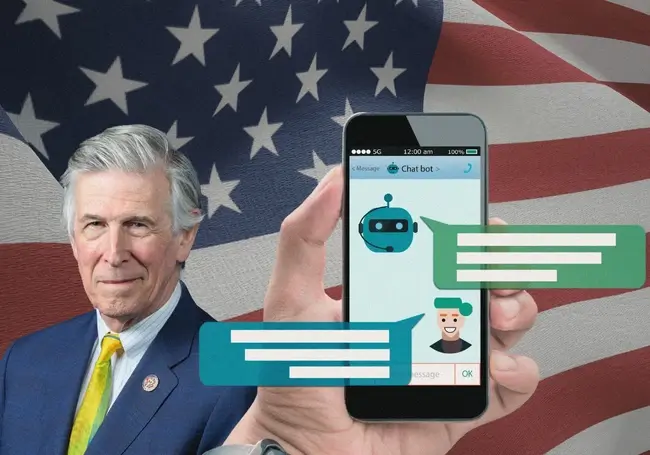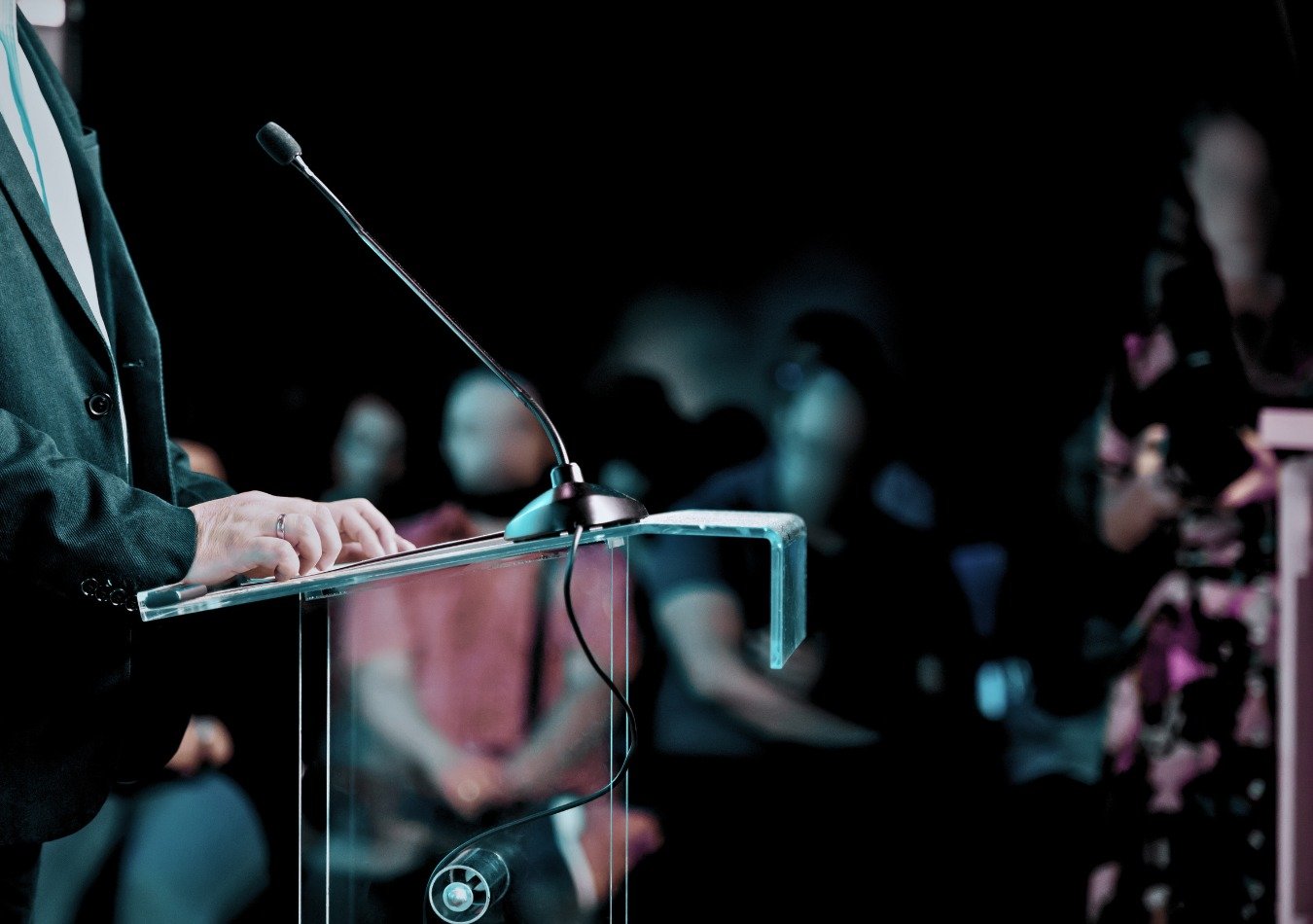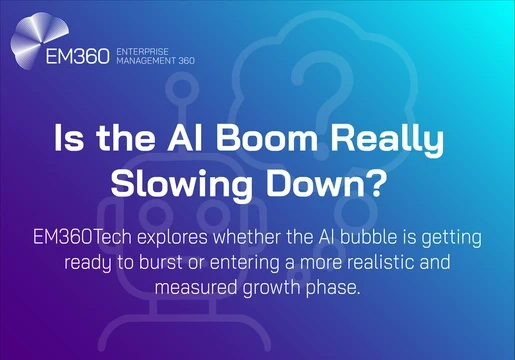An independent US congressional candidate in his frustration created an artificial intelligence (AI) chatbot to debate his opposition’s AI likeness.
Bentley Hensel, also a software engineer for the good government group – CivicActions developed the chatbot after Virginia's 8th congressional district's congressman and U.S. representative – Don Beyer refused to appear for additional debates.
This inspired Hensel to create DonBot, an AI chatbot that will serve as a stand-in for Congressman Beyer in a debate set to stream online in mid-October.
As the national elections come closer and the 2024 U.S. House of Representatives elections in Virginia are to be held on November 5, 2024, the new candidate was keen to contest Beyer.
Without Beyer’s permission, Hensel developed DonBot which will stand opposite two independent congressional candidates.
DonBot is a text-based AI chatbot based on an Application Programming Interface (API) from OpenAI, the maker of ChatGPT developed by Bentley Hensel. It’s currently being trained on the creator’s official websites, press releases, and data from the Federal Election Commission.
Hensel told Reuters that the bot is not intended to mislead anyone and is trained to provide accurate answers.
“Don Beyer understands the best strategy is to avoid any public appearances, but the voters of this district deserve to hear from him and all the candidates on the issues,” added Hensel.

Congressional candidates pitted against DonBot
The debate with the AI chatbot is scheduled to stream online on October 17, 2024. Hensel and David Kennedy, also an independent candidate in the congressional election, will face off against DonBot in a live debate.

Beyer’s spokesperson noted that the US Congressman has already appeared at a September forum facing the other three candidates and did not plan to partake in the debate scheduled this month.
“He continues to be a leading voice in Congress on the need to improve artificial intelligence regulation, including legislation to prevent nefarious actors from utilizing AI to spread election misinformation,” the spokesperson added.
In case the third participant, Jerry Torres, a Republican representative in the running does not participate in the October debate, Hensel plans to create an AI version of him too, Reuters reported.
The use of AI admittedly was an attempt to gain some traction in a predictable campaign, the independent candidates acknowledged.
The AI chatbot creator told Reuters, he was motivated by a desire for greater transparency.
The upcoming debate will serve as a testament to the innovative use of a relatively new technology, capable of prompting immediate text, video, and audio responses from opponents.
The concern AI technology has highlighted in the past is resurfacing, technologists are concerned about convincing deep fakes of celebrities or politicians potentially damaging reputations, fueling the circulation of political disinformation.
AI fueling misinformation?
Earlier this year, AI deepfakes bombarding social media created a ruckus, igniting concerns about the spread of misinformation especially pertaining to European and Asia elections. This served as a warning for over 50 countries currently holding or headed for polls including the US.
@em360_tech Trump is in his misinformation era 🙄 #AIfail #AI #TaylorSwift #TheErasTour #TSwift #Eras #deepfake #news #techtok #fyp ♬ Bad Blood (Taylor's Version) - Taylor Swift
For instance, not too long ago, an AI deepfakes of Taylor Swift fans commonly known as Swifties endorsing Donald Trump was perusing the internet.
In fact, Donald Trump took to the right-wing social site – Truth Social to post AI deepfake images falsely depicting Taylor Swift and her fans endorsing his campaigning.
Trump allegedly posted pictures of most AI-generated deepfakes sourced from right-wing social media accounts that seemed to have a history of sharing misinformation.
He reposted deepfakes of Swifties supporting Trump’s presidential campaign with the message stating, “I accept!”
One of the deepfake images, in fact, featured a play on the famous Uncle Sam World War One army recruiting poster reading: "Taylor wants you to vote for Donald Trump". All of the images were faked.
Soon after the whole debacle, Taylor Swift posted her endorsement for democratic candidates, Joe Biden and Kamala Harris.
“I spoke to @vmagazine about why I’ll be voting for Joe Biden for president. So apt that it’s come out on the night of the VP debate. Gonna be watching and supporting Kamala Harris by yelling at the TV a lot…,” Swift posted on X.
As such, DonBot also referred to as CandidateGPT was exclusively viewed by Reuters. The media agency said that the software generally provided straightforward answers to questions of policy, often citing Beyer’s website as the source.
When Reuters asked the chatbot about gun control, it replied:
“We are beyond a crisis point with guns in America” and “halting gun violence has been a major focus of my work.”
To another query, the software said “I firmly support a woman’s right to choose,” part of a five-sentence response pointing to legislation Beyer has endorsed according to the media outlet.
DonBot uses inference to respond instead of using Beyer’s own words, for instance, it rejected the notion that the U.S. bombed Nebraska.
“Bombing any part of our own country is completely unacceptable,” the bot said.
The AI chatbot also declined to endorse Trump for president by stating, “I have consistently opposed the previous president’s policies and approach,” and that it has not officially endorsed anyone for president.
“I am not naïve about what’s going to happen in November,” Hensel told Reuters, alluding to Beyer’s significant lead in the polls. “But I believe strongly in greater transparency.”







Comments ( 0 )